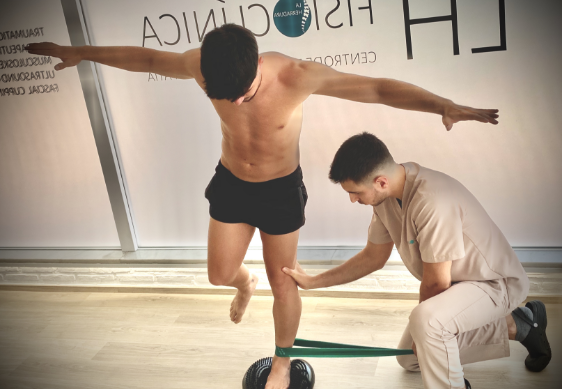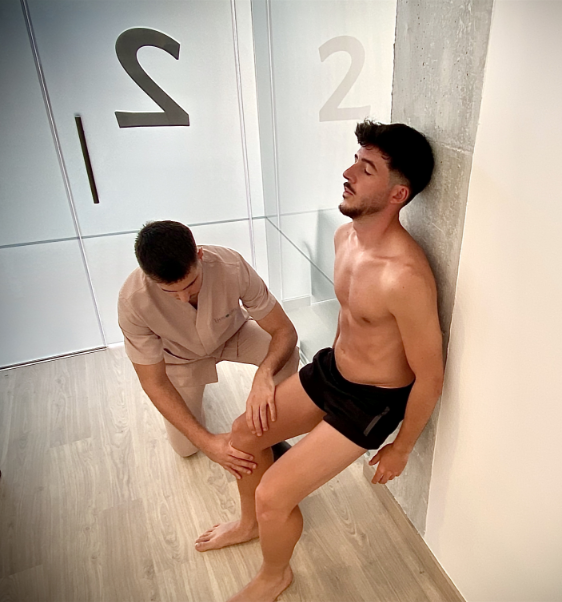
Recover or improve pre-injury competitive level and do so in the shortest time possible.
We understand the process of functional rehabilitation for the injured individual as the time that elapses between the moment of the injury and his/her return to work or competition. The main objective of functional rehabilitation is for the individual to regain or even surpass the level at which he/she competed prior to the injury, and to do so in the least time possible. At the LH Physiotherapy Clinic, our aim is to provide a suitable rehabilitation, allowing for a recovery strong enough to avoid relapses.
Functional rehabilitation is a personalized process with a focus, as noted above, aimed at allowing the patient to return to daily activity without any problems, that is: at 100%, free from discomfort or any signs of the injury that had kept him/her on the sidelines. For optimal functional rehabilitation, collaboration by the patient and participation by qualified professionals – both physiotherapists and sports coaches – are necessary
Preventive functional rehabilitation allows us to work at specific levels, employing various therapeutic exercises aimed at preventing various injuries. We use movement as a basis to achieve balance in muscles and joints; this balance is lost when some are over-worked and others under-worked.
Preventive functional rehabilitation should be combined and coordinated with the work carried out with a sports coach. The resulting synergies, between physiotherapist and trainer, when the patient is willing to give it his/her all, are the key to a therapy that offers the best results.

Functional rehabilitation is of special importance for athletes. After an athlete has suffered an injury, the processes involved in his/her recovery are based on a gradual increase in movement and mechanical stress on the tissues until the athlete is fit to compete again.
Following the identification of inflammation processes associated with the musculoskeletal injury – and which generate alterations in the transmission and processing of proprioceptive information and neuroplastic changes in the properties and functions of neurons in the primary motor cortex – functional rehabilitation is employed to alleviate the neuromuscular deficit that persists after injury.
Notably, functional rehabilitation in the athlete does not overlook the importance of psychology to the athlete’s recovery. Good mental health means the athlete can return to competition and enjoy practicing sports with vigor and confidence.

Frequently asked questions about muscle retraining
What is muscle rehabilitation and what does it involve?
Muscle rehabilitation is a therapeutic process aimed at restoring the functionality and strength of muscles after an injury, enabling the patient to safely return to daily or sporting activities.
When should I start muscle rehabilitation after an injury?
It is crucial to begin rehabilitation once acute pain has subsided, under the supervision of a healthcare professional who will determine the appropriate time based on the progress of the injury.
What types of exercises are included in a muscle rehabilitation programme?
Programmes typically include mobility, strengthening, endurance, and coordination exercises, tailored to the patient’s specific needs and the nature of the injury.
How long does the muscle rehabilitation process take?
The duration varies depending on the severity of the injury, adherence to the treatment, and the patient’s individual response. It can range from weeks to several months.
Can muscle rehabilitation help prevent future injuries?
Yes, proper rehabilitation strengthens muscles and improves stability, reducing the risk of relapses and future injuries.
Can I do muscle rehabilitation on my own at home?
While some exercises can be performed at home, it is essential to have guidance from a physiotherapist to ensure correct execution and progression of the programme.
What role does nutrition play in muscle rehabilitation?
A balanced diet rich in essential nutrients supports muscle recovery and optimises the outcomes of the rehabilitation process.
